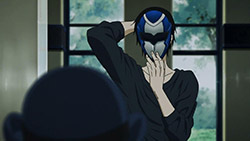 |
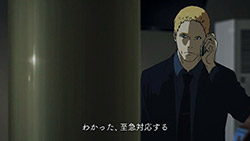 |
 |
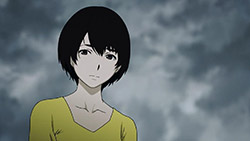 |
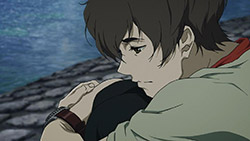 |
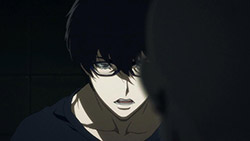 |
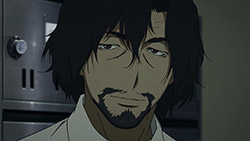 |
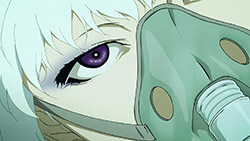 |
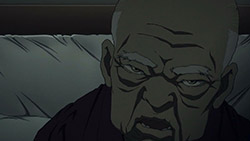 |
 |
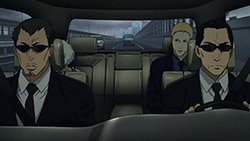 |
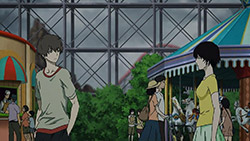 |
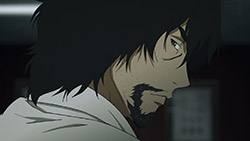 |
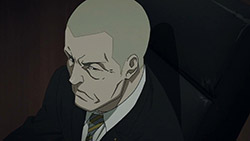 |
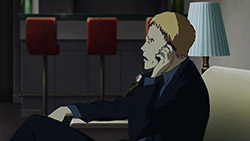 |
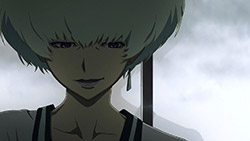 |
 |
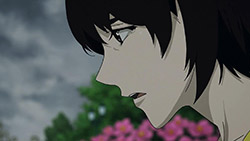 |
 |
 |
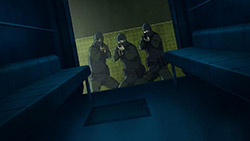 |
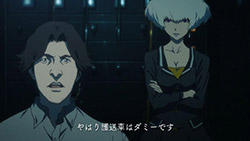 |
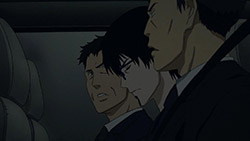 |
 |
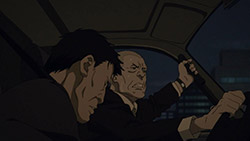 |
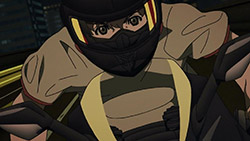 |
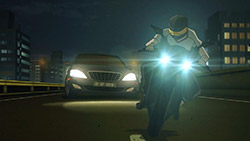 |
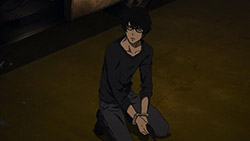 |
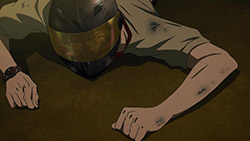 |
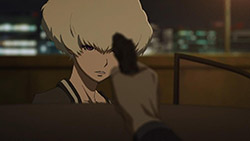 |
 |
 |
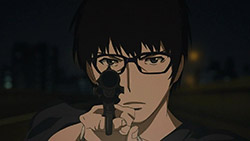 |
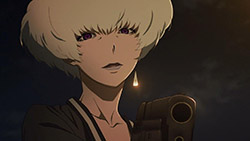 |
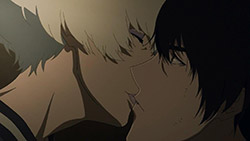 |
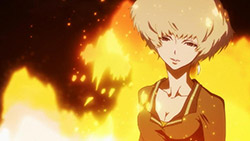 |
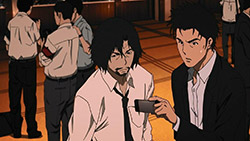 |
 |
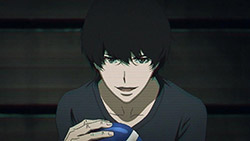 |
「HELTER SKELTER」
“No matter what a single detective shouts,
it will be no more than a small voice amidst a storm.
That voice will disappear before it reaches anyone.”“Even if that is the case, I will continue to shout. I will never forgive you.”
And honestly, one could argue that’s the story in a nutshell. Zankyou no Terror is a story about never forgetting the past, revealing the truth, about never giving up in an attempt to attain it, believing that others will come to believe your version of the story, and using that revelation to pave the way to the future. It’s about ensuring that things come to light before the sands of time erase everything, and everyone has their own motives for ensuring that the dice of history rolls their way. We have the United States trying to determine whether or not Japan altered their constitution in such a way that allowed them to secretly produce an atomic bomb, the Japanese trying to sort themselves out by covering not only the presence of that bomb but of further atrocities committed in the past, and both Shibazaki + Sphinx trying to make sure that the lid gets blown off the entire thing.
Amidst the storm and the singular voices however, it’s perhaps most important to note that the events in this week’s episode aren’t so much to be viewed in terms of their significance within the series’ story itself, but in regards to the real-life commentary—which includes but isn’t limited to:
Needless to say, one could spend all day discussing the potential ramifications and symbolism here, and it’s important to at least note that it exists here. Watanabe’s clearly packing Zankyou with more than just terror, and one does begin to wonder at what point does his message cease to become just that—that is, how much of the message is related to the story versus how much of it is his own view on it all?
Going back to the actual events this week though, I have to say that it manages to maintain quite a bit of the intensity and raw emotion from the previous week. Considering episode nine (clearly, this isn’t a coincidence) was my favorite episode of the series so far, that’s definitely a good thing, and I’ll say I was on the edge of my seat as I watched most of the events develop—especially when Shibazaki finally meets Mamiya face to face. Sadly, the return and inclusion of Five doesn’t do any favors toward what was otherwise a spectacular episode, and I honestly don’t know what to say about what she does with her “confession” and “dramatic send-off”. I can see where it could’ve been a great watch given the proper development and presentation of her in prior episodes, but I sure didn’t feel any of the impact the moment was meant to give.
And so move on we shall. The atomic bomb is now on the move above the skies of Japan, and the question as always remains what happens from here. Nine’s “good-bye Japan” could be interpreted as either a threat or a farewell from his end, and I think it’s clear that there’s no real intent to cause casualties on his part. I’m anticipating that his whole announcement and launch of the atomic bomb is just meant to show that such a device exists, but at the same time I can’t help but wonder. This has all the hallmarks of a high altitude nuclear explosion for the purpose of sending out an EMP that’ll fry everything electronic around the nation, and it’d be a perfect fit in with his intent. It won’t kill anyone directly, it’ll prove an atomic bomb exists, it’d blow the lid on the program, and it’d also demonstrate the clear issues inherent with building such a device in the first place. Guess we’ll see. It’s just too bad things couldn’t have been made so that the series ends on episode twelve. ONWARD TO THE FINALE.

The women in this series…. sigh
Five is the embodiment of isolation. She’s been deprived of real human connections her whole life so it’s only natural for her to come across as crazy when she does try to “connect” with nine. It’s implied that she’s been working for the US government for quite some time, where you are rewarded for using underhanded methods to achieve your goals. You need to be heartless to take on jobs like that. So it doesn’t exactly help your sense of humanity being a human test subject AND having certain behaviors reinforced by your environment.
I can understand why viewers are disappointed with Five’s character since she comes across as your stereotypical crazy villain but at the very least, her insanity felt warranted given the circumstances. The scene before she died hinted that she had some shred of humanity left (the will to connect with Nine who she was separated from a long time ago), but I suppose she accepted the fate she was cruelly subjected to: as a shell of a human and a tool to push political agendas. I actually appreciate the fact that the show didn’t give her much redemption before she erased herself from the world. Not everyone gets that chance or privilege and that’s a fact of life.
And what’s the point of Lisa? Well I personally see her just as a person rather than a character that fulfills some sort of role in the story. It’s interesting that all the other main characters try to manipulate the world around them to achieve some sort of goal, noble or not, while Lisa is just there trying to live and connect with the people around her to the best of her abilities without imposing her ideals onto anyone. Sure, this means that she isn’t actively influencing the plot like the other characters are, but that doesn’t make her useless. Her behavior is a stark contrast to the The United States / Japan, who are allies in name while they secretly pushing their own agendas.
So. According to your comment, everyone’s damaged and deep inside want to connect with others. Not exactly groundbreaking stuff. Societal isolation and social instability is no excuse for stupidity. What exactly did Five do throughout the series, besides yelling out Engrish commands and painting her nails? If she acted like a savant and performed great feats of intellectual calculations or made excellent tactical decisions, than I may have been satisfied with the writers being generous with her screen time. But what exactly was the point of her? What exactly is the point of Lisa? What exactly did they serve as characters, except drive the episodes through to the finish point?
Nine and Twelve are the true antiheroes of the story: the symbolic outsiders who work hard to make society open its eyes to reality, who battle postwar stoicism and 21st century cynicism but are also the epitome of those things. Yet we get more screen time catering to police running around ridiculously than the interaction between these two brothers. There’s so much undiscovered ground with these two. And right now, they’re both quite bland.
Well the first encounter with Five was her basically outsmarting Nine and Five’s plan so there’s that…the rest of her shenanigans were just her toying with people because she’s crazy (for the reasons I gave).
I’m probably not any less dissatisfied with the show than you are, but at the same time I don’t think Five and Lisa were completely “useless” characters, they just weren’t executed very well. If Five was a full on machine as you wished she wouldn’t have wasted time toying with Nine, she would have done what was needed, and I think the story would have ended with the boys getting caught, The End. She wasn’t like that because she was still tied to the past, maybe felt some warped sense of connection to Nine. Acting on the wishes of her handlers would have conflicted with what she wanted, which is why I’m guessing she didn’t have some super effective method of catching the boys. I am a little disappointed that she didn’t elaborate on why she was so obsessed with “beating” Nine though.
Lisa is just a normal person that’s hit the rock bottom of loneliness. Classmates isolate her, her mother treats her like a possession, not a person. To put it frankly, she may be normal but her psyche is pretty fucked up. So yes, she does long for some connection, but what’s interesting is that she chooses Nine and Twelve, who blackmail her in the very first episode. It’s like she was made to get Stockholm syndrome. I don’t think there’s a “point” to her character other than to see how someone like that interacts with people, and how people interact with her. I don’t know the exact reason why Twelve liked her so much, but it could be pity or some sort of solidarity since they’re both “unloved” children.
The good: Shibakazi, the subtle critique on Japanese nationalism and militarization (Abe…), Nine not backing out on his threat.
The bad: Five.
The ugly: That freaking amusement park date. I know it’s supposed to be “poignant” that Twelve has never had a proper life and wants to go on a “date” for once in his life and he’ll probably die soon, but WTF. It’s like the animators had to pad him out with filler because they couldn’t think up a way to develop this character.
‘Nuff said about Lisa.
If that bomb goes off, the series will end with a VERY literal BANG…
One thing that was bothering me was why 5 and her US forces let the 12 and Lisa go? Last seen they were sitting ducks on that ferris wheel…
Nice move on decoy convoy, Metropolitan Police. For once you have trolled the genius children.
As I suspected, CIA (no one believes the FBI cover now, right?) has grown tired of 5’s antics and decided to relieve her from her duties. Not surprisingly she did not react well. You can’t really threaten a dying (wo)man… When facing someone with literally nothing to lose, shoot first, declare your reasons later.
I am amazed at 5 after chasing and nearly killing 9 multiple times requested that he “lived for her”. “womens logic” memes inbound!
One can compare the bigger political plot of the series, centered on the loose nuke, with GITS 2nd GIG – with underlying themes of nuclear weapons dangers and semi-vassal state of Japan relations towards the US. Whereas GITS has seen US as driving factor towards militarization and nuclearization of Japan, ZnT sees US as trying to prevent the same outcome, to keep Japan under control.
Zephyr is correct that Zankyou can be described as a critique on the dichotomy between the old and the young. More specifically Zankyou can be thought of as a subtle polemic for the current state of Japanese society and the debate around its desired form. Importantly there are two key points here, both related and opposite sides of the same the coin: the nuke and the kids (Nine/Twelve, Five, and Lisa).
Firstly from the frank, almost lifeless description of Hiroshima and the references of 9/11 I think it can be argued that Watanabe is against nuclear weapons. The nuke here is simultaneously a representation of Japan’s past (and what some Japanese are harkening back towards) and one potential seed of its future. Because of how the nuke looks to be used (atmospheric blast) the desire may be to point out that whatever path Japan chooses, there is no going back (i.e. sending a message); if we were meant to take away the dangers of nuclear warfare it would be more likely for Sphinx to detonate it on the ground and to induce casualties, this is not what has been indicated so far in Zankyou. If anything Watanabe’s focus on nukes and imagery associated with their use (or potential use) is his way of indicating which side of the current domestic debate between nationalism and pacifism he falls on.
How Nine and Twelve (and therefore Five and Lisa) become linked to the debate surrounding the nuke through their use of the weapon. Here Watanabe is using Nine and Twelve to show that it is in the young where Japan’s future will be determined; the old may provide the tools, but it is up to their children to make use of them. Specifically from this point is the decision on the nationalism debate, it is the current generation of Japanese who will decide the issue, not their parents nor their grandparents (interestingly also a line of thought in some media sources concerning the issue too). Nine and Twelve are the personification of a decision many will have to make in the not too distant future, a decision concerning what they want their society and nation-state to be. Building off of this is the division between Nine/Twelve and Five (and now Nine and Twelve) and how it can relate to the divisions between the young. Five is the co-opted child, the one indoctrinated and firmly committed to following the preexisting order (in general, her actual motivations (i.e. gaming Five) have been superseded by her handler’s objectives). Nine and Twelve are the recalcitrant activists, the ones desiring change and who will act upon it. Delving further here yields two more key classes, the activist who fights for ideals (Twelve), and the activist who fights for more personal reasons (Nine). The latter of course drops out of the game when finding something better worth living for (i.e. Lisa), while the former will take his ideals to death (Twelve). For those asking what purpose Lisa serves, she is the representation of the vast amount of young (and people in general), the ones who aren’t activists and generally do not care, the countless unnamed in history who go along with change, whatever it may be.
Now to come full circle remember the Oedipus riddles from the beginning of the show? These riddles are what tie all these loose parts together. Oedipus was likely used because in addition to being a representation of fate and its inevitability, the trilogy can also be read as a moving out from the weight upon one’s shoulders. As Oedipus learned to forgive himself for his mistakes and surrender the burden placed upon him by fate so too do Nine and Twelve come to move out from weight of expectations, of responsibility, of the collective history leading up to that point. Oedipus is a reference to the need for Japan (specifically its youth) to throw off the burden of its history before finding the path that it in its current form wants to follow, not the path that history (i.e. the old) demand it does. Just like Nine and Twelve have made their choices, so to must Japan decide on just what future it wants for itself.
How next week’s episode ends may tell us which choice Watanabe hopes Japan will make.
why the fuck aren’t you blogging for RC, I’m serious.
This is definitely one of those series that really requires the viewer to think more critically about things rather than having everything told to them or even shown (obviously anyway) through actions and events in the series itself.
If one doesn’t do such a thing, then it’s easy to get lost or wonder what the point of various things are, much less why.
I think you’ve got these two mixed up.
Nine is the one who is playing with death.
Twelve is the one infatuated sigh Lisa due to God knows why.
@HalfDemonInuyasha
You are definitely right, the strength of Zankyou is in its references and imagery, the story is simply a vessel through which the author (i.e. Watanabe) is sending a message; the objective, beyond entertaining the viewer, is to get the viewer to see the forest for the trees. In this regard Zankyou ranks up with other shows like Serial Experiments Lain, Ghost in the Shell, Psycho-Pass, and to some degree Evangelion. How much value you get out of Zankyou therefore is likely to depend on how much you like piecing the messages of these types of shows together.
@Petit Orenji
Probably, I’ve been unfortunately getting the two mixed up since the beginning of the season 😛
Oh, Five. So you had a massive crush on Nine all this time & went through all of that just to get his attention.
The whole thing about Japan being without dignity and being a loser because they lost the war made me dumbfounded, i couldnt take those words seriously. How about taking a page out of Germany’s book? Germany lost both wars and yet Germany picks itself up and stands strong.
I feel like this is an echo of the Hiroshima and Nagasaki bombings. I may not know Japanese war veterans, but there are people who probably lived long enough with too much national pride and might think like Mamiya in the present-day Japan. It’s sort of rooted in the culture, maybe. Just think of wanting to commit seppuku (like a samurai who betrayed one’s lord) but someone did it for you instead; and in that sense, it’s not honorable because you should die in your own hands and not someone else’s. Twisted? It sure is. But that is how humans are sometimes. And I think, that is why “loser” may not mean losing the war for them; it’s losing to save one’s honor due to pride.
That Mamiya geezer looks straight out of Samurai Champloo.
He reminded me of Zouken Matou.
Why did 5 let lisa and 12 escape?
Why did the FBI let her do whatever she wanted even when it was clear from the first five minutes that it was not in their best interests?
What was her motive? to beat 9?
Why did she come up with these retarded schemes when she could have just had their apartment raided? she knew where they lived
Why didn’t she just shoot 9 in the highway? it was over, she obviously had the advantage.
What was the point of her character? to obstruct the plot and waste time? we already have one just like that called lisa.
Why is this show so horribly written?
Though I also feel that Five could have been used in a better (see, fleshed out) way, I think Pancakes has hit the nail on the head on what the writers intended all of our characters to stand for.
Personally, I have no problem with Lisa; if you feel frustrated with her indecision and lack of action, you’ve probably never had to deal with the kind of life-or-death stress, or the kind of situation she initially found herself in with the first bombing. In true moments of terror, it’s much more likely that you’ll freeze like a deer in headlights, and not be making the wisest or best decisions.
She obviously has more than just that going on with her psyche, but her apparent ‘failings’ are mostly being a character who is built along the lines of a real person, who has then been set beside a lot of super characters and looks pathetic in comparison. We’d probably all look pathetic next to this cast.
I agree with you there, Lisa is not one of those “super characters”, she’s just a lonelly girl who was pushed around by everybody, and who only wanted to belong somewhere. She came close to Nine and Twelve because she got to a point where nothing in her life was worth living for and then, she saw a possibility of helping these guys, to get back at a world who had only brought her pain.
Lisa is the incarnation of alienation and frustration, she likes Nine and Twelve because they were the only ones who saw them as a real person with feelings, and even got to the point of asking for her help (particularly Nine).
And now, she is the one who wants to cherish this bounds and push Nine in the right direction, towards helping Twelve, because she knows how important friendship his.
I agree with both of you. Lisa is the closest thing to ‘ordinary’ in this cast. I’ve always thought there was something so very profoundly human about this anime, and Lisa is part of that. She also gives an experience to Nine and Twelve that nobody else would have given them-being seen as human themselves, a way of being remembered as people, and not just the numbers they had been named by. So I would argue that, in a cast full of people who are special in one way or another, her very ordinariness is what marks her out as something different.
That, and part of me is convinced that part of Twelve’s personal attraction to her is the fact he ‘sees’ her voice as pale yellow, which according to him is rare.
Useless bitches, both of them (5 and Lisa…I’d argue 5 is more useless) -____-
Goodness.
A love confession warranted all of that? Okay.
I’m still wondering what Twelve meant in episode 1 when he said that Lisa had the eyes of those from the Institute. Hopefully we will get a glimpse of that in the finale.
I believe that’s a symbolic way of pointing out the loneliness of Lisa. All the kids in the institution were alone, surrounded by the dark, never to be loved or needed by anyone. Basically, an existence not needed by the world itself. Lisa has been bullied by her own classmates, she didn’t have any friends, her own mother didn’t “loved” her more than as a possession. That’s why I believe even after seeing all that destruction, and the danger that’s surrounding 9 and 12. Lisa was able to relate to that sense of loneliness, 9 and 12 were able to relate back.
Just reminding everyone that two of the best soundtracks, “bless” and “birden” haven’t been used yet. Which means the last episode will probably be epic in the feels department.
I just want to say that episode Twelve is probably going to be a blast !!!